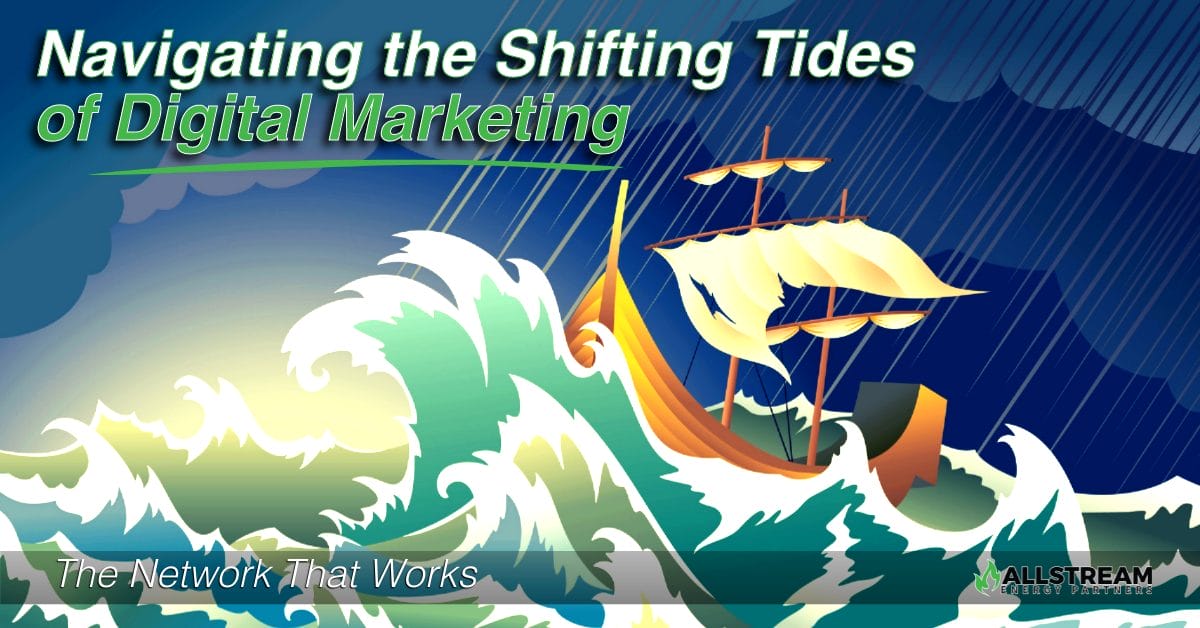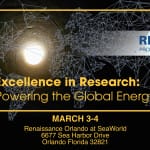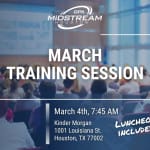In today’s fast-paced business environment, digital marketing isn’t just evolving, it’s undergoing a complete transformation. For industrial sectors like oil and gas, keeping pace with these changes while maintaining operational excellence presents a unique challenge that requires specialized expertise to get your products and services found in Google and LLM Search (GEO and AEO-see bottom for Appendix of Terms)
The Digital Marketing Revolution
The digital marketing landscape looks drastically different than it did even a year ago. Search algorithms are increasingly sophisticated, user behavior continues to shift toward mobile and voice search, and artificial intelligence has moved from an emerging technology to a mainstream tool reshaping how businesses connect with their audiences.
For oil and gas companies, this rapid evolution creates both opportunities and complexities. The specialized nature of the industry means generic marketing approaches often fall short, wasting valuable resources and missing key connection points with potential clients and partners.
Why Industry-Specific Expertise Matters
This is precisely why partnering with a specialized agency like Allstream Energy Partners makes strategic sense. Founded by two established industry leaders of 25 years each, the Allstream team brings proven years of marketing experience specifically within the oil and gas industry, they understand not just digital marketing tactics, but the unique challenges, terminology, regulatory considerations, and business development cycles that define success in this sector.
Their industry knowledge means they’re not learning the basics of your business while managing your marketing; they’re applying proven strategies tailored to the specific needs of industrial oil and gas companies. When your marketing partner already speaks your language, the path to growth becomes significantly clearer.
From SEO to AEO: The Evolution of Search
Perhaps nowhere is the digital transformation more evident than in search marketing. Traditional Search Engine Optimization (SEO) is evolving into what industry experts now call Answer Engine Optimization (AEO). This shift represents a fundamental change in how information is discovered and consumed online.
While traditional SEO focused primarily on ranking for keywords, AEO acknowledges that modern users are seeking direct answers to their questions. Search engines and AI platforms are increasingly designed to deliver those answers rather than just providing links to potential information sources.
The LLM Revolution and Its Impact on Marketing
The rapid adoption of Large Language Models (LLMs) like ChatGPT, Claude, Google’s AI Overview (AIO) and others has accelerated this transformation. These sophisticated AI systems don’t just find information, they synthesize, summarize, and present it in conversational formats that users find immediately valuable.
For businesses in technical industries like oil and gas, this presents both a challenge and an opportunity. Technical specifications, service offerings, and specialized knowledge that once lived exclusively on your website must now be optimized to be discoverable and correctly represented within these AI systems.
Is SEO Still Worth It?
Even with the rise of AEO and LLMs, the underlying principles of SEO are more critical than ever. Here’s why:
(E-E-A-T refers to Experience, Expertise, Authoritativeness, and Trustworthiness)
- LLMs Need Authoritative Sources: AI models “learn” from the vast ocean of data available online. If your website is not well-optimized, authoritative, and structured in a way that search engines (and by extension, LLMs) can easily crawl and understand, it simply won’t be considered a viable source for answers. Quality SEO builds the foundation of trust and discoverability for both humans and AI.
- Diverse Search Journeys Persist: While LLMs are gaining traction, not everyone starts their search there. Traditional search engines like Google, Bing, and even privacy-focused options like DuckDuckGo continue to be primary information hubs. Being optimized across all these platforms ensures you capture a wider net of potential leads, regardless of their preferred search method.
- Direct Traffic and Brand Authority: High search rankings (whether traditional SEO or AEO) consistently drive organic traffic, build brand authority, and position your company as an industry leader. When your website provides the best, most direct answer to a complex industry question, it builds immense credibility.
A Brief Strategy for Optimization in the New Era:
To thrive in this environment, your strategy must include:
- Deep, Authoritative Content: Move beyond simple product descriptions. Create buyer’s guides, technical whitepapers, case studies, and FAQs that directly answer your audience’s most pressing questions.
- Structured Data (Schema Markup): This is crucial for AEO. By using schema, you tag your content in a way that helps search engines and LLMs understand the meaning and relationships within your data, making it easier for them to extract and present answers.
- Entity-Based Optimization: Focus on optimizing for concepts and entities (e.g., “compressor types for natural gas pipelines,” “wellhead integrity solutions”) rather than just isolated keywords. This directly aligns with how LLMs process information.
- Multi-Platform Presence: Ensure your website is optimized for visibility across Google, Bing, DuckDuckGo, and poised to be a primary source for future LLM knowledge bases.
Allstream Energy Partners builds comprehensive visibility strategies that address this complex ecosystem rather than focusing solely on single-platform performance.
Optimization Fundamentals for the Modern Era
While detailed optimization strategies are tailored to each client’s specific situation, several foundational principles guide effective digital marketing in today’s environment:
- Question-Based Content: Structuring information around the specific questions your prospects are asking
- Technical Accuracy: Ensuring absolute precision in all technical content to build trust with both human and AI evaluations
- Structured Data Implementation: Helping search systems and LLMs understand the context and relationships within your content
- Authority Signals: Developing the indicators that position your content as authoritative in your specific industrial niche
Moving Forward with Confidence by Partnering with Allstream Energy Partners
As digital marketing continues its rapid evolution, having a partner who understands both the technical aspects of your business and the changing digital landscape becomes increasingly valuable. The Allstream team’s combination of industry experience and digital marketing expertise provides oil and gas companies with a strategic advantage in connecting with the right audiences at the right time. Each of the founders have 20 years + Experience in Oil and Gas within the industrial markets – Specifically in Upstream (onshore and offshore), Downstream (refining, chemical, petrochemical, ammonia, etc), Midstream (Gathering Systems, Pipelines, Gas Processing, Transmission / Compression / Pumping), and New Energies such as Hydrogen and CCS.
In an industry where technical precision matters in operations, shouldn’t you expect the same precision in your marketing partner?
Is your digital marketing strategy keeping pace with these changes? Contact Allstream Energy Partners to discuss how their industry-specific approach can help your oil and gas business thrive in today’s digital environment.
Call Efrain Garcia at (832)496-3004 or email at Efrain@AllstreamEP.com
Other Terms To Be Aware Of in This AI Journey:
Appendix Understanding Key Optimization Terms in the Age of LLMs
The world of digital content and artificial intelligence is constantly evolving, bringing with it a fascinating array of new acronyms and concepts. For those working with or interested in Large Language Models (LLMs), understanding these terms is crucial, as they describe how content is found, processed, and even generated in the AI era. Let’s break down some of the most important ones:
SEO: Search Everywhere Optimization
Beyond just Google, this expands traditional SEO thinking. For LLMs, it means making sure your knowledge base is accessible and discoverable not just by search engines, but by any platform. A LLM might pull information from whether it’s a specific database, a social media feed, or a private knowledge graph.
SEO: Search Engine Optimization
The foundational practice. Even with LLMs, content still often originates on webpages. Good traditional SEO ensures that the source material an LLM might reference (via web crawling) is well-ranked and easily found by the underlying search mechanisms LLMs sometimes use.
GEO: Generative Engine Optimization
This is where it gets exciting for LLMs! GEO focuses on optimizing content so that it’s ideally structured and presented for generative AI models to easily understand, process, and use as source material when creating new text, code, or images. Think about making your data LLM-friendly for synthesis.
AEO: Answer Engine Optimization
LLMs are often “answer engines” themselves, attempting to provide direct, concise responses. AEO is about structuring your content so an LLM can quickly identify the key facts and figures necessary to extract and present a clear answer to a user’s query, much like how Google’s featured snippets work.
LLMO: Large Language Model Optimization
This one focuses specifically on structuring content to be effectively processed and accurately represented by LLMs like GPT-4, Claude, and Llama. This includes clear formatting, logical organization, and precise language.
AISO: AI Search Optimization
With search becoming increasingly AI-driven (think semantic search, personalized results and user intent), AISO ensures your content is understood and prioritized by these intelligent algorithms. For LLMs that act as search interfaces, AISO prepares your data for AI-powered retrieval.
AI SEO: AI Search Engine Optimization
Bridging two worlds, AI SEO signifies using Artificial Intelligence tools and insights to enhance traditional and new SEO strategies. It’s about AI helping you perform SEO better, whether that’s for search engines or for making your content more digestible by other LLMs.
GAIO: Generative AI Optimization
Very similar to GEO, GAIO is the broader concept of optimizing anything (content, data, prompts) for its effective use within generative AI systems. This includes ensuring your data is clean, well-structured, and semantically rich for LLM training and inference.
AIO: AI Optimization
The overarching term. AIO encompasses all efforts to optimize digital assets, processes, or content for interaction with any form of Artificial Intelligence, including, but not limited to, LLMs. It’s about being “AI-ready” across the board.
Semantic SEO 2.0
This is crucial for LLMs. It moves beyond keyword matching to focus on the meaning (semantics), entities (people, places, things), and relationships within your content. For an LLM, truly understanding the context and relationships in your text is key to generating insightful and accurate responses.
CAIO: Conversational AI Optimization
As LLMs power more conversational interfaces (chatbots, voice assistants), CAIO specifically tunes content for these interactions. It’s about crafting answers that are natural, concise, and flow well in a spoken or chat-based exchange, ensuring LLMs can deliver quality conversational experiences.
Understanding these distinctions helps us navigate the evolving digital landscape where LLMs are increasingly central to how information is accessed, processed, and created.
Contact us at Efrain@AllstreamEP.com or call at (832)496-3004







